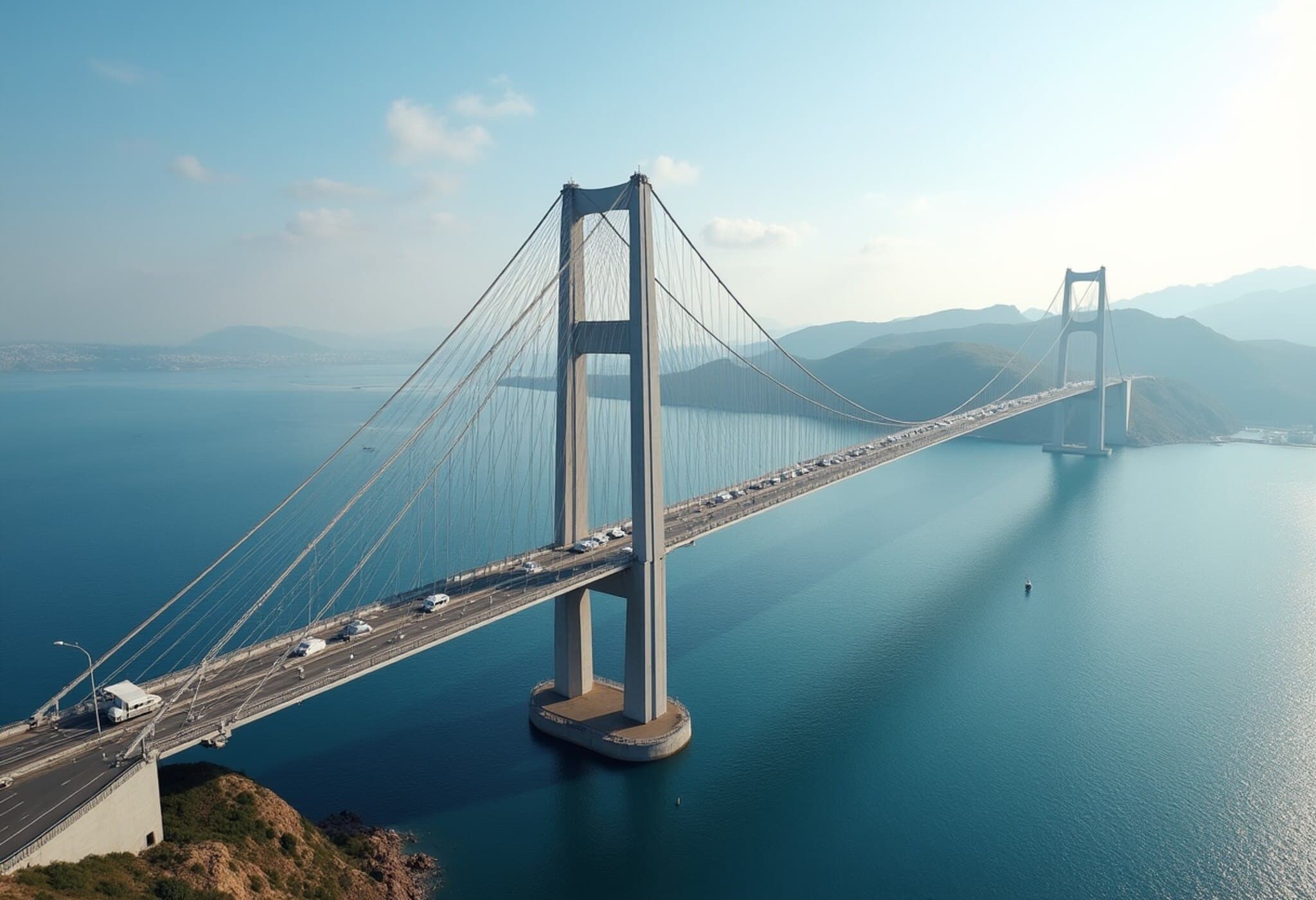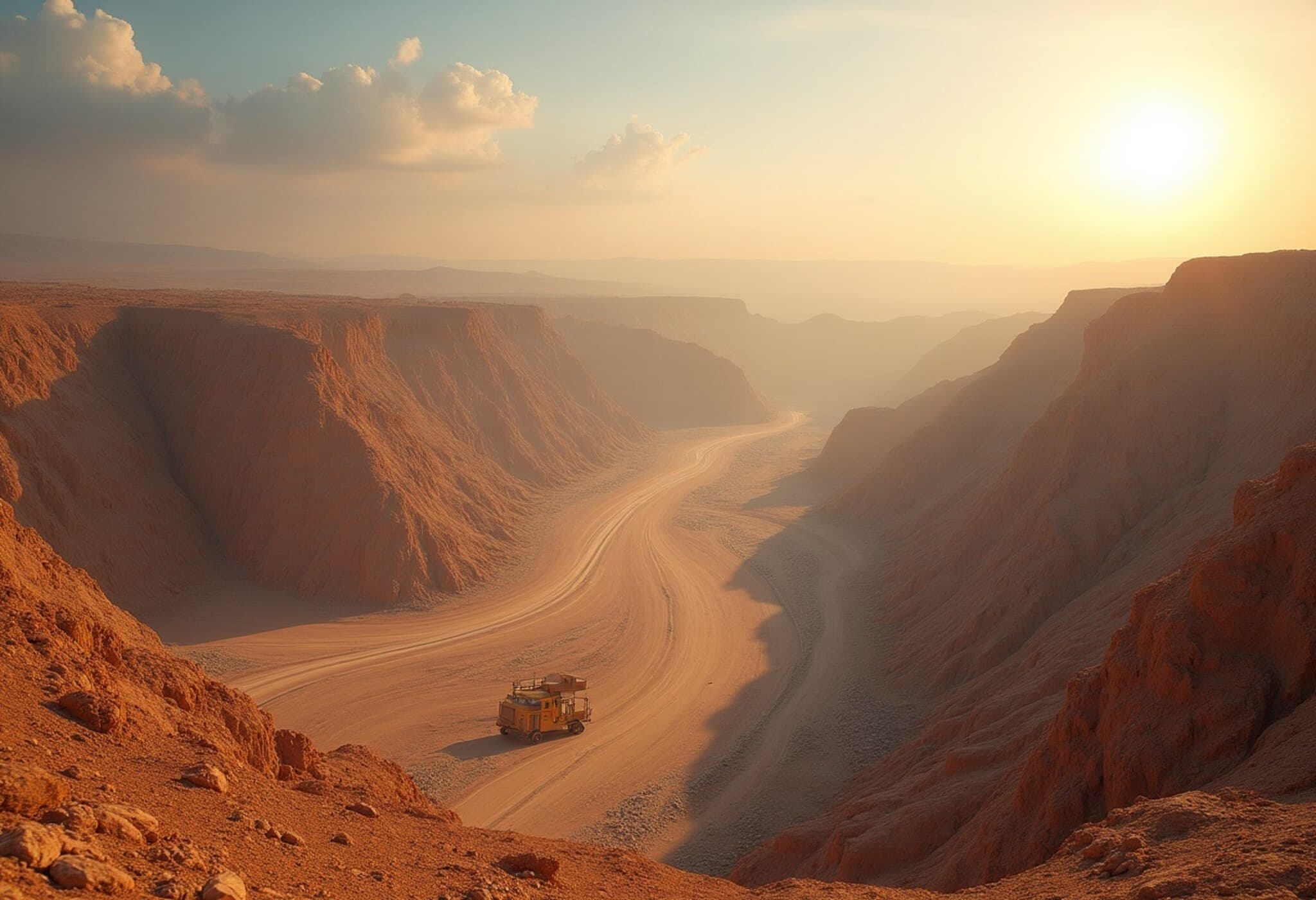Asian Development Bank Steps In to Modernize Pakistan’s Crucial Railway
The Asian Development Bank (ADB) is poised to fund a $2 billion upgrade of the critical Karachi-Rohri rail line in Pakistan, a project initially slated for financing by China. This marks a significant shift in the financing dynamics of Pakistan’s infrastructure landscape amid delays and financial strain linked to Chinese investments.
The Strategic Importance of Karachi-Rohri Rail Line
The Karachi-Rohri railway segment is not just a transportation artery but a vital corridor for economic growth, especially for mining ventures such as the Reko Diq copper mine, one of the world’s largest untapped copper deposits. Developed by Canada’s Barrick Mining Corporation, the mine’s viability hinges heavily on efficient transport for copper ore, making the rail upgrade urgent.
Spanning approximately 500 km between Karachi—the commercial hub of Pakistan—and Rohri near Sukkur, this railway section serves as a backbone for freight movement. The current infrastructure is aging and approaching exhaustion, raising concerns about the mine’s output transportation capacity once production ramps up, projected for 2028.
Expert Insight:
Transportation analysts stress that improved rail infrastructure is often a game-changer for resource export economies. Faster and reliable rail links reduce costs, minimize logistical bottlenecks, and attract further foreign investment.
China’s Delayed Financing and Pakistan’s Debt Challenges
Originally, the Karachi-Rohri rail overhaul was a centerpiece of the China-Pakistan Economic Corridor (CPEC), a flagship project under China’s Belt and Road Initiative (BRI) aiming to invest approximately $60 billion in Pakistan since 2015. However, after a decade-long negotiation stalemate, China has yet to finalize funding for this largest rail modernization project.
This delay comes amid Pakistan’s broader difficulties with Chinese debt repayments for other CPEC projects, including power plants where Islamabad is actively seeking to reschedule payments. These financial tensions underscore the complexities of international infrastructure partnerships, particularly when geopolitical and economic pressures collide.
Policy Perspective:
From a US and international economic standpoint, Pakistan's pivot toward multilateral institutions like the ADB may signal a strategic diversification of its financing sources, potentially easing China’s disproportionate influence while adding governance oversight through international lenders’ diligence frameworks.
Asian Development Bank’s Role and Project Details
Sources close to the negotiations reveal that the ADB is in advanced talks to spearhead the financing, potentially leading a consortium to underwrite and supervise the project which includes:
- Modernizing track and bridges to increase rail speeds and capacity
- Introducing diesel trains capable of more efficient cargo transport
- Implementing a competitive bidding process for international engineering contractors
- Linking upgraded rail lines directly to the Reko Diq mine’s output routes
While the ADB has not publicly confirmed the deal, the bank stated that cooperation with Pakistan regarding railway development is ongoing and various project proposals undergo rigorous due diligence before commitments.
Adding momentum, earlier this month, ADB announced $410 million in financing for the Reko Diq mine itself, with the ADB president expected to visit Islamabad shortly to further discuss development cooperation.
Diplomatic Balancing Act: Pakistan, China, and Regional Implications
For Pakistan, delicately balancing its longstanding strategic relationship with China while embracing multilateral funding models is a diplomatic tightrope.
A senior Pakistani official emphasized, “We would never do anything to jeopardize that relationship.” Yet, the practical needs of infrastructure development and economic pragmatism are pushing Islamabad to diversify its partnerships.
China continues to affirm its commitment, with its foreign ministry reiterating the “ironclad friendship” and “all-weather strategic partnership” ahead of Foreign Minister Wang Yi’s recent visit to Islamabad. Both sides expressed intentions to deepen cooperation and advance the next phase of CPEC despite previous delays.
Regional Security Challenges to Infrastructure
The railway and mining region pose security risks, notably from insurgencies in Pakistan’s western province of Balochistan. Militants have targeted rail infrastructure in the past, presenting ongoing challenges to project implementation and operational safety.
Looking Ahead: Economic and Political Ramifications
The successful upgrade of the Karachi-Rohri rail line could catalyze Pakistan’s mining sector transformation, significantly boosting exports and foreign direct investment. It will also serve as a litmus test for Pakistan’s ability to balance sovereign debt management with sustainable infrastructure development.
For policymakers and international observers, the unfolding scenario highlights broader themes around infrastructure financing in emerging markets: geopolitical influences, the role of multilateral banks, debt sustainability, and the imperative of securing strategic corridors amid regional instability.
Editor’s Note
The shift in financing from Chinese sources to the ADB signals a potential evolution in Pakistan’s strategic economic partnerships, underscoring how infrastructure projects can pivot amid geopolitical and financial complexities. As Pakistan advances this critical rail upgrade to sustain its mining ambitions and economic growth, stakeholders must watch how this reorientation impacts regional dynamics, debt diplomacy, and development outcomes. Will this be a blueprint for balancing great-power influence with multilateral oversight in the developing world?










